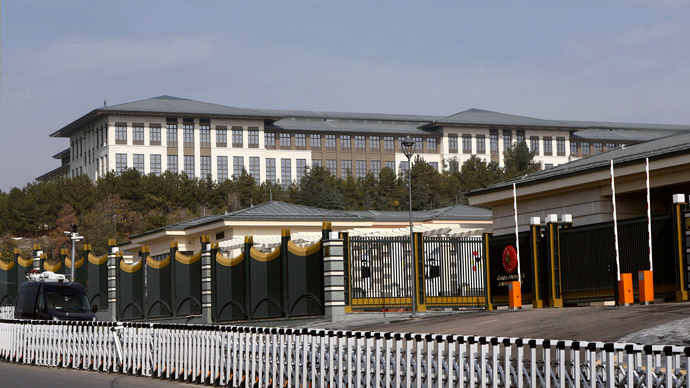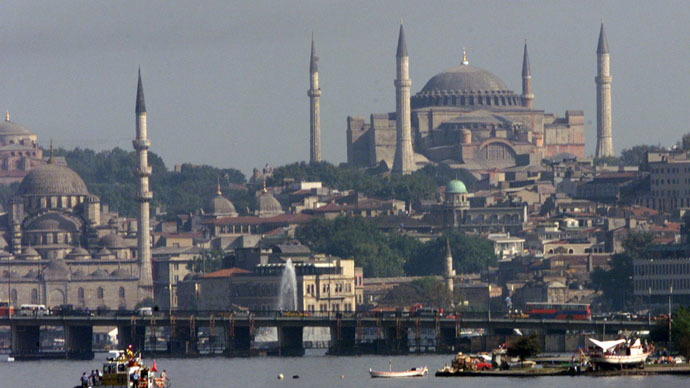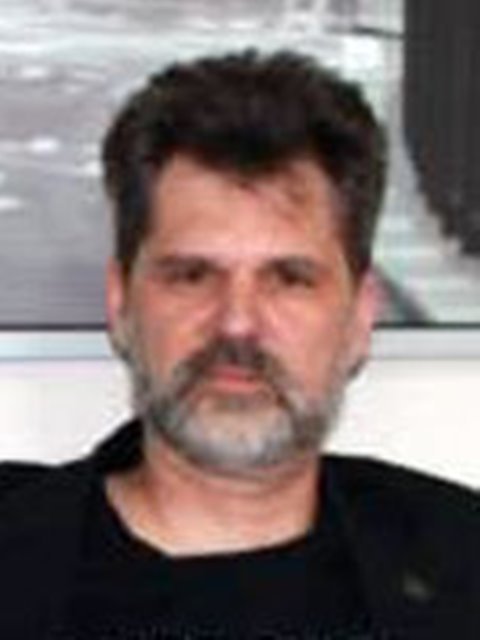President Erdogan and Islam: Piety and Ottomanitas

Islam is currently going through a remarkable revival in Turkey. Prime Minister Ahmed Davutoglu and President Tayyip Erdogan are both working hard to consolidate this Muslim re-awakening at home and the spread of Turkey's religious pretensions abroad.
As a country with an ethnically mixed population, Turkish unity has always been heavily reliant upon the religion of Islam as a unifying factor providing a common identity. During the Kemalist era (1923-2002) Islam was largely replaced by Turkish nationalism to supply a kind of social cement, though this form of ideological adhesive was nevertheless very much dependent upon Muslim solidarity. This largely meant that the terms Islam and Muslim were simply replaced by Turkey and Turkish, meaning that the unspoken yet palpable reality that nominal allegiance to the state religion was a necessary requirement for citizenship. Even though Turkey has long been held up as an example of secularism-in-the-Islamic-world, the Directorate for Religious Affairs (or Diyanet, in Turkish) controls and supervises the way in which Turks at large experience their religious feelings and celebrate religious holidays and other significant dates and instances -- hence, my use of the loaded term "state religion" in this context. The Diyanet was set up as a branch of government directly attached to the office of the prime minister in 1924, in response to the Turkish state's abolition of the Caliphate and the office of the Şeyhülislamor Grand Mufti as well as the Ministry of Pious Endowments.
The Islamic component of Turkish nationalism
The unseen reality in Kemalist Turkey, though ostensibly 'secular' and unburdened by Islamic reaction, was always that popular life to a large extent depended heavily upon Islam, its rituals, and formal organization. Testament to this hidden truth was the oft-cited statistic that 99% of Turkey's population was comprised of Muslims. Individuals belonging to the small remnants of Turkey's Christian population groups were nominally Turkish citizens, but were really largely perceived as 'local strangers' or 'foreigners' by the population at large and the authorities as well. But ever since the Justice and Development Party (or AKP) came to power in 2002, Islam has once again become a highly visible centre-stage property in the definition of Turkish identity but also in the characterization of the nation's wider outlook and orientation. In the context, the party's founder and erstwhile Prime Minister-now-turned President Recep Tayyip Erdogan has been using his personal charisma and eloquence to good effect over the past years. Tayyip Erdogan projected his personal piety, peppering his numerous speeches and addresses all over the country with untold references to the Creator and stock Muslim phrases, and in doing so succeeded in creating an emotional bond with large swathes of the population -- large swathes that felt alienated from the ruling elite through its near-fanatical devotion to modernity and progress. As a result, Erdogan became the first Turkish politician to successfully challenge and overcome the Kemalist consensus, crystallized in the personality cult surrounding the figure of Mustafa Kemal Atatürk, the nation's founding father. Earlier I wrote that "Atatürk represents the ultimate model of the figure of the strongman or leader, as he was the military commander who defeated the nation's enemies and subsequently led his people into the modern world - a modern Turkey where Islam was still an important aspect, albeit supposedly relegated to the private sphere and under strict state control through the good offices of the Diyanet or Directorate of Religious Affairs".

A new president, a new palace
In some ways, one could argue that Tayyip Erdogan’s project of reintroducing "an overt Islamic discourse into the country's public and political life" has now reached its provisional pinnacle with his election to the office of President of Turkey. In a clear effort to create a wedge between the previous Kemalist era and his own time, President Erdogan decided to abandon the traditional abode of the nation's head of state and instead move into a newly built presidential palace, significantly erected on the grounds of the Atatürk Forestry Farm (AOÇ), an area donated to the Turkish state in 1937 and even pronounced a protected site in 1992. As a result, construction work on the grounds was and remains illegal. Three different administrative courts issued three injunctions to stop the building, decisions that were even backed by the Council of State. Still, these legal measures proved to no avail and now Erdogan’s White Palace boasts 1,000 rooms, costing an estimated $615 million to build, as announced by the Finance Minister Mehmet Şimşek.
As such, there was a huge public outcry when the White Palace was officially unveiled, with many accusing the President of trying to resemble an Ottoman Sultan. A deputy for the opposition Republican People’s Party (or CHP), Umut Oran, alleged that the Turkish president's budget was three times that of the Queen (meaning the British Royal Family). Oran also posed the poignant yet pointless question, “What could have been done with that money?". The Global Post's Timothy McGrath attempted to supply some possible replies to this rhetorical query, saying that the "United Nations Office for the Coordination of Humanitarian Affairs (OCHA) estimates that it would cost $987.8 million to end the current Ebola outbreak" and that the money spent on Erdogan’s White Palace could have been a more than worthwhile contribution towards solving this global health scare. The tongue-in-cheek reporter even points out that "Erdogan's palace could [also] make a big impact in high need areas like Syria, Sudan, South Sudan, the Democratic Republic of Congo, and Somalia", where billions in aid are needed with the OCHA actually stating that "$9.9 billion dollars" are what's needed to cover the annual "global humanitarian aid needs". Turning directly to Turkey and its local issues, such as the 10.1% unemployment figure as of last August (up 1% from previous June), McGrath facetiously says the Turkish President could have instead given "every person in Ankara $136 [population c. 4.5 million], or $44 for every person in Istanbul [population c. 14 million], or $8 for every person in the entire country [population c. 75 million]".

Projecting Ottomanitas
The erstwhile Speaker (2009-11) and current Member of the Parliament Mehmet Ali Şahin defended the President, declaring that "these kind of structures are structures which heighten a country's prestige. For that reason it is of no importance how much money was spent on them. It is [a palace that was] made for our country, made for our people". The President himself however clearly sees his not-so humble new abode as indicative of his personal ambitions to revive Turkey's Islamic identity through appealing to the country's Ottoman past -- there are now also plans on the table for the erection of a mosque inside the new presidential complex. In fact, Erdogan’s desire to revive the Ottoman splendor of old (let's call this intangible asset expressed in material trappings of all sorts, Ottomanitas) is on full display in the other palace he commissioned for himself on the grounds of the kiosk built by Sultan Mehmet Vahdettin VI (1918-1922) in Çengeköy overlooking the Bosphorus in Istanbul.
The New Turkey's first popularly elected president now has his "working office" adjacent to a small residence (torn down and rebuilt during its restoration) built for the last reigning sultan of the Ottoman Empire, the self-proclaimed leader of the Islamic world between the 16th and 20th centuries. Tayyip Erdogan’s compound on the Bosphorus, apparently set to replace his prime-ministerial office on the Dolmabahçe Palace, also contains a helicopter landing pad or helipad, a large parking lot, as well a number of luxury villas-cum-pools - all modern extravagancies arguable representing a present-day form of Ottomanitas.
President Erdogan clearly likes to surround himself with samples of present-day wealth and splendor, such as a personal airplane able to fly non-stop from Istanbul to Los Angeles while enjoying wireless internet access or his new bulletproof official car with accompanying up-to-date ambulance, spending his money widely while alive, as prescribed by the Quran in the Surat Al-Baqarah: "O you who have believed, spend from that which We have provided for you before there comes a Day in which there is no exchange and no friendship and no intercession" (2:254). And arguably, spending money for the sake of projecting Ottomanitas is synonymous with expenditure in the way of Allah in a Turkish context. After all, in a Turkish context the terms Islamic and Ottoman have become largely interchangeable during the Republican era.
Budgetary constraints and other concerns
The AKP-led government has slowly but surely led Turkey down a post-Kemalist path, a Turkish way where the religion of Islam is once again an important component of public and political life. This year's state budget caused quite a stir when it was made public at the end of 2013. Namely the fact that the Diyanet (or Directorate for Religious Affairs) was to receive a 18.2% increase in its appropriation was seen as outrageous, an appropriation larger than 13 separate ministries. Last month next year's budget was released and once again, the Diyanet's appropriation turned out to be most generous, with approximately $2.5 billion. In comparison, the Ministry of the Interior only got $1.75 billion and the Foreign Ministry a paltry $636.5 million, whereas the Ministry of Science, Industry and Technology only received a trifle $299.7 million. These figures clearly show that Turkey's AKP-led government regards spreading the word of Islam as more important than encouraging science and technology, arguably the main drivers behind any successful industry. Still, the current Minister of Science, Industry and Technology, Fikri Işık proves himself to be a most optimistic individual, announcing on his ministry's designated website that "it is our goal to build a Turkey which is a base for manufacturing and technology".

The Diyanet, on the other hand, keeps forging ahead under the leadership of Prof. Dr. Mehmet Görmez, in charge since 11 November 2011 when he replaced Ali Bardakoğlu as president after the latter had imprudently called for the establishment of an independent religious authority in Turkey in an interview he gave to the self-avowed atheist Ahmet İnsel in the daily Radikal (Oct. 23-24, 2010). Recently, on 12 November, the Diyanet organized the First Summit of South-American Muslim Religious Leaders under the under the heading “Building Our Traditions and Our Future”. Premier Davutoglu's deputy Yalcın Akdoğan opened the five-day event by declaring that "all terrorist organizations using Islam for their bloody attacks are insulting the Islamic values", thereby setting the tone for the summit aiming to strengthen further the religion of peace (or Islam) across the Atlantic. In turn, Professor Görmez underlined the Turkish Diyanet's earlier organization of the 'Eurasia Islamic Council', the 'Summit of African Muslim Leaders', the 'Meeting of European Muslims', the 'Convention of the Balkan Religious Affairs' Directors', and the 'World Muslim Scholars Initiative for Peace, Moderation, and Common Sense'. Addressing the South-American audience directly, Görmez declared that "we have not gathered here to impose any ideology or religion but we gathered here to discuss issues that concern Muslims in Latin American countries, religious services and cooperation opportunities". The Turkish Diyanet invited 76 religious leaders from 40 countries. Mehmet Görmez indicated that the Turkish Diyanet is more than willing and able to support and assist the South-American Muslim community, offering Turkish help in terms of religious education, by providing religious publications, and offering close cooperation on all levels. On this last point, the Diyanet head told the gathered audience about the Turkish Directorate for Religious Affairs' international religious services outreach, no doubt aided in great measure by the government's generous budget appropriation for his department.
Ottomanitas across the world
President Erdogan also attended the summit, proceeding to speak at the event's closing ceremony: "Muslim sailors reached the American continent 314 years before Columbus, in 1178. In his memoirs, Christopher Columbus mentions the existence of a mosque atop a hill on the coast of Cuba". In this way, the Turkish President managed to cause a sensation, while ignoring the fact that mere notion of the 'discovery of America' is nothing but a linguistic ploy used to consecrate the European domination of the world from the 16th century onwards and to discount the achievements of the continent's native populations.
It would seem that in this instance, Tayyip Erdogan’s internet browsing (possibly on board of his private plane) has led to his discovery of a certain Dr. Youssef Mroueh,an academic apparently affiliated with the As-Sunnah Foundation of America. But Mroueh claims the mid-tenth century AD as the point in time when Muslims 'discovered' the American continent. Irrespective of his source, Erdogan employed his appearance at the summit to continue his personal quest to project Ottomanitas across the world, intimating that the Turkish state, via the good offices of the Diyanet's generous budget no doubt, would undertake to erect a mosque on Cuba, as a kind of trans-Atlantic reminder of the awesome power of Ottomanitas wielded by Turkey and the AKP.
The statements, views and opinions expressed in this column are solely those of the author and do not necessarily represent those of RT.
The statements, views and opinions expressed in this column are solely those of the author and do not necessarily represent those of RT.













